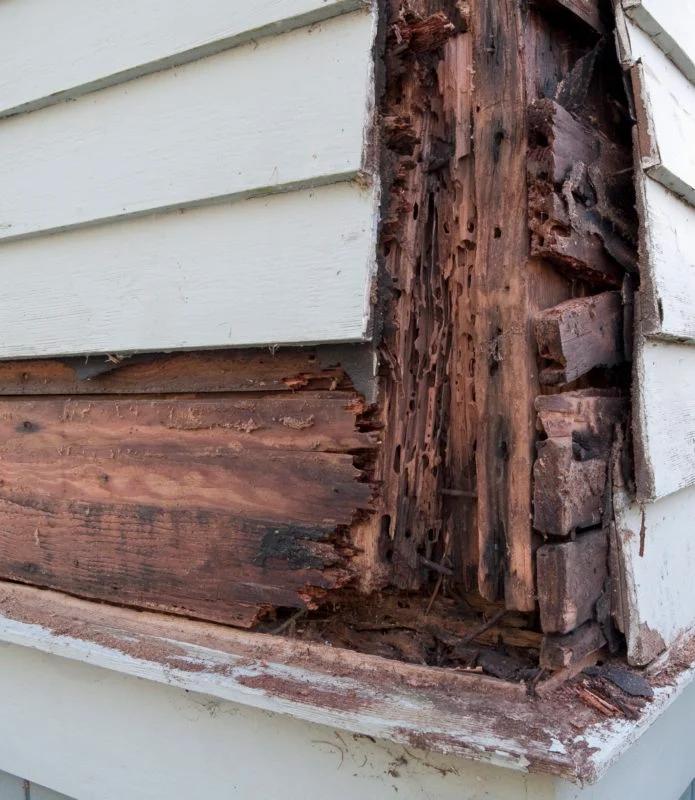
Termite Reports & Barriers: Ultimate Guide
Buying or selling a property in Queensland can be a complex process that involves various legal procedures, including conveyancing. Conveyancing is the legal process of transferring the ownership of a property from the seller to the buyer. It involves numerous steps, including getting a building and pest inspection report, preparing a contract of sale, and ensuring that all legal requirements are met. In this article, we will discuss some critical aspects of QLD conveyancing, including termite reports, termite barriers, common termite locations in QLD, regional council rules and regulations, building and pest inspection reports, and terminating a contract.
What are Termite Reports?
One crucial aspect of QLD conveyancing is termite reports. These reports are prepared by a licensed inspector who examines the property for termite infestations and damages. The report provides detailed information on the property’s condition and any termite-related problems. Termite reports are vital for both buyers and sellers, as they can influence the sale price and impact the property’s value.
Understanding Termite Barriers
Termite barriers are systems that are designed to prevent termites from entering a property. There are two types of termite barriers: physical and chemical. Physical barriers use materials such as stainless steel mesh, graded stone, or concrete to block termites’ entry into the property. Chemical barriers use chemicals to create a barrier around the property that repels termites. Termite barriers are mandatory in Queensland and must be installed in all new buildings and extensions.
Where are Termites Most Common in QLD?
Termites are a common problem in Queensland due to the region’s warm and humid climate. They are most commonly found in coastal areas, but they can also be present in inland regions. Some of the most commonly infested areas in QLD include Brisbane, the Gold Coast, and the Sunshine Coast. It is essential to note that termites can infest any property, regardless of its location, age, or construction type.
Are Termites found in QLD Regional Councils?
Yes, however the QLD regional councils have rules and regulations in place for termite management. The Building Code of Australia (BCA) outlines the requirements for termite management in buildings, including the installation of termite barriers. Regional councils also have specific regulations that must be followed, depending on the property’s location and construction type.
Building and Pest Inspection Reports
A building and pest inspection report is a comprehensive report that provides detailed information about a property’s condition, including any defects or termite-related issues. The report is conducted by a licensed inspector who examines the property’s interior and exterior, including the roof space and subfloor. It is recommended that buyers obtain a building and pest inspection report before purchasing a property to ensure that they are aware of any issues.
Terminating a Contract
Sometimes, circumstances change, and a buyer or seller may need to terminate a contract. Terminating a contract can be a complex process that involves legal procedures and financial implications. It is essential to seek legal advice before terminating a contract to ensure that you are aware of your rights and obligations.
FAQs
Q: Do I need a termite report if I am buying a property in Queensland?
A: Yes, it is recommended that you obtain a termite report before purchasing a property in Queensland.
Q: What is the purpose of a termite barrier?
A: The purpose of a termite barrier is to prevent termites from entering a property.
Q: Can I terminate the contract if termites are found in the property?
A: It depends on the terms of the contract and the extent of the termite infestation. You should seek professional legal advice before taking any action.
Q: Are termite reports mandatory in Queensland?
A: No, but they are highly recommended. A termite report can provide you with valuable information about the condition of the property and help you avoid costly repairs in the future.
Q: Where are termites most common in Queensland?
A: Termites are prevalent in Queensland, and they can be found in both urban and rural areas. However, they are most common in areas with high humidity and rainfall.
Q: Can you find termites in regional areas?
A: Yes, termites are found all over Queensland due to the humidty and warm temperature
Q: What is a termite barrier?
A: A termite barrier is a physical or chemical barrier that is installed around the perimeter of a property to prevent termites from entering the building.
In conclusion, understanding termite reports, barriers, and other conveyancing aspects is critical for property buyers and sellers in Queensland. Termite infestations can cause severe damage to a property and can be costly to repair. By obtaining a termite report and installing a termite barrier, property owners can prevent termite-related issues and protect their investment.
It is also essential to be aware of the regional council regulations and requirements for termite management in Queensland. Buyers and sellers should obtain a building and pest inspection report before purchasing or selling a property to ensure that they are aware of any issues that may affect the property’s value.
In the end, if you are unsure about any aspect of QLD conveyancing, it is always best to seek professional advice. Conveyancers and solicitors can guide you through the process and ensure that all legal requirements are met.
Don’t let termites ruin your dream home! By taking the necessary steps to prevent and manage termite infestations, you can ensure that your property remains in good condition and retains its value. Create a QLD conveyancing article explaining termite reports, barriers, and more, and be informed about the essential aspects of property ownership in Queensland.
This is general advice only and you should contact your legal representative for specific legal advice.





